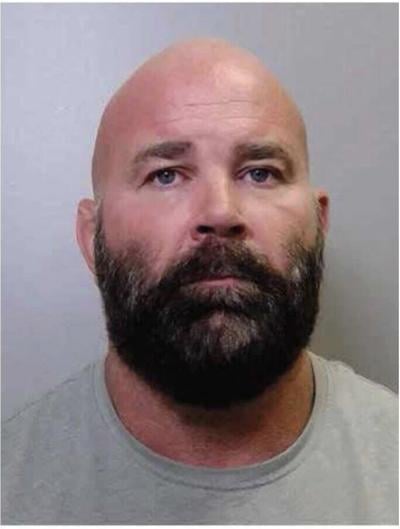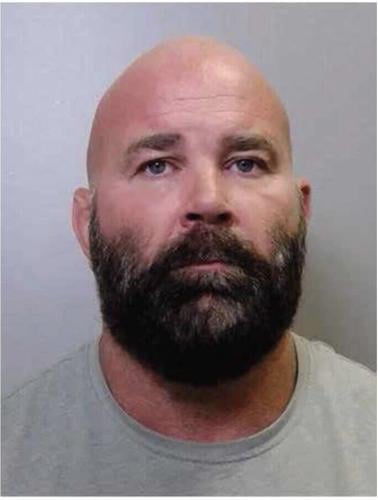There is online love from outlaw bikers from Switzerland, Denmark and the Caribbean â but not from Canada â on the to Oakville Hells Angel Craig (Truck) McIlquham.Ìý
McIlquham, 55, also known as Craig Brown, was ambushed and shot to death around 8:30 p.m. Tuesday, April 29 as he left the Mandarin family-style buffet restaurant at 1881 Fairview Street in Burlington, about a five minute-drive from the Queen Elizabeth Way.
Police described the murder as targeted.
Investigators are probing how McIlquhamâs killer knew he would be dining that evening at the restaurant.ÌýThere are also security cameras outside the front entrance.
Ìý
McIlquham was president of the Niagara chapter of the Hells Angels, but spent much of his time recently in the Caribbean.
âBrother you are going to be a great loss in this world,â a biker identified as âJohn HAMC Caribbeanâ posted on McIlquhamâs memorial page.
âWe had a lot of laughter and fun,â John wrote. âGoing to miss you terribly. Strength to family and friends.â
âHAMCâ stand for âHells Angels Motorcycle Club.â
Another tribute is posted by someone who identified himself as “Buller81,” from Randers, Denmark.
âTruck was an amazing brother and friend, he will be truly missed,â Buller81 wrote. âI send my love and condolences to his family. Big love and respect.â
The number â81â is used by bikers to stand for âHA,â the clubâs initials, as âHâ is the eighth letter of the alphabet and âAâ is the first.
Most of the tributes posted online were personal, like one by a woman who described him as âlike a second dad.â
âHe was always so kind and gentle towards me and took us tubing, surfing, water-skiing, whatever the day called for he provided us with that,â she wrote. âI will never forget him taking us on all of those adventures, they were a huge part of my life. He always told me that if I ever had a problem to give him a call. He will be missed so much by all. Truly a pure soul.â
âHe left behind three beautiful kids that are amazing human beings that are loved very much,â another woman wrote. âHe has taught me a lot and I will cherish every single memory I have with him and everyone Iâve met through him, will love you always Truck!!â
âCraig was Bestman at our wedding,â another poster wrote. âHe graciously let us use his home for the event. My aunt was adamant that she went for a ride on his bike and made him promise not to go fast, all you could hear above the bike was my aunt screaming as he took her down the country road at top speed. When they got back he was in hysterics laughing at her. He was such an amazing man, I am so sorry for your loss. Sending lots of love to you and your family.â
Police appealed to the public for anyone with dashcam footage of Fairview Street and Brant Street between the hours of 4 and 10 p.m. on the night of the fatal shooting.
They are particularly interested in a late model, dark Honda Civic with tinted windows and black alloy rims.
McIlquham got his nickname, âTruck,â because of his powerful build.
A long-time Hells Angel, he once served as a bodyguard for former Hells Angels boss Walter (Nurget) Stadnick of Hamilton, when Stadnick was widely considered the most influential outlaw biker in Canada.
Stadnick was sentenced to 20 years in prison after he was convicted in Montreal in September 2004 of a variety of conspiracy to commit murder, conspiracy to traffic drugs and involvement in gang activities. His sentence was reduced to 14 years and seven months forÌýpre-trial time served, and was released from prison in 2019.Ìý
McIlquham was chargedÌýin 2019 by Canadian authorities during a multi-jurisdictional, wide-reaching probe into international gambling and loan sharking called Project Hobart.
He was then described by police as one of the leaders of an international gambling ring, with at least 14 sports-betting websites, including five illegal offshore sites based in the Caribbean.
The ring also operated an illegal gambling house in Mississauga, police said.
Police said at the time the Hells Angels were working in the gambling ring with an established Mafia group from York Region.
The Project Hobart charges were ultimately dropped because of court delays, blamed in part on the COVID-19 pandemic.
Meanwhile, Canada Revenue charged him with failing to report revenues totalling over $2,000,000 from 2014 to 2018.



















